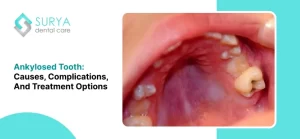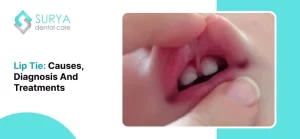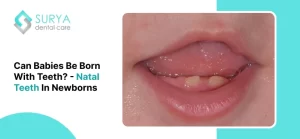The Surprising Link Between Oral Health and Overall Well-being
The connection between oral health and overall well-being is a fascinating topic that has gained significant attention in recent years. It's no secret that a healthy smile can boost our confidence and self-esteem, but did you know that it can also have a profound impact on our mental and physical health? As Dr. Nigel Carter, CEO of the Oral Health Foundation, notes, "Oral health is not just about having a healthy mouth, it's about having a healthy body." But what exactly is the link between oral health and overall well-being, and how can our dental care impact our mental and physical health?
The Impact of Gum Disease on Cardiovascular Health
One of the most significant connections between oral health and overall well-being is the link between gum disease and cardiovascular health. Research has shown that people with gum disease are more likely to develop heart disease, and vice versa. This is because the bacteria that cause gum disease can also increase inflammation in the body, which can lead to the development of heart disease. As "The mouth is a window to the body, and gum disease is a significant risk factor for cardiovascular disease," says Dr. Steve Horne, a dentist and expert in oral health. But how can we prevent gum disease and reduce our risk of heart disease? The answer lies in good oral hygiene practices, such as regular brushing and flossing, and regular dental check-ups.

The Link Between Tooth Decay and Diabetes
Another important connection between oral health and overall well-being is the link between tooth decay and diabetes. Research has shown that people with diabetes are more likely to develop tooth decay, and vice versa. This is because diabetes can affect the body's ability to fight off infections, including those in the mouth. As "Diabetes is a significant risk factor for tooth decay, and tooth decay can also increase the risk of diabetes," says Dr. Maria Ryan, a dentist and expert in oral health. But what can we do to prevent tooth decay and reduce our risk of diabetes? The answer lies in a healthy diet and regular dental check-ups. By eating a balanced diet that is low in sugar and acid, and visiting our dentist regularly, we can reduce our risk of tooth decay and diabetes.
How Oral Health Affects Mental Health
But the connection between oral health and overall well-being is not just physical - it's also mental. Research has shown that people with poor oral health are more likely to experience anxiety and depression, and vice versa. This is because the pain and discomfort of poor oral health can affect our mood and self-esteem, making it harder to cope with mental health conditions. As "Oral health is not just about having a healthy mouth, it's about having a healthy mind," says Dr. Nigel Carter. But what can we do to improve our oral health and reduce our risk of mental health conditions? The answer lies in good oral hygiene practices, such as regular brushing and flossing, and regular dental check-ups. By taking care of our teeth and gums, we can reduce our risk of anxiety and depression, and improve our overall mental health.
The Role of Nutrition and Diet in Maintaining Good Oral Health
So, what role does nutrition and diet play in maintaining good oral health? The answer is simple - a healthy diet that is low in sugar and acid is essential for maintaining good oral health. Foods that are high in sugar and acid, such as sweets and fizzy drinks, can contribute to tooth decay and gum disease, while foods that are low in sugar and acid, such as fruits and vegetables, can help to prevent these conditions. As Dr. Steve Horne notes, "A healthy diet is essential for maintaining good oral health, and a healthy mouth is essential for maintaining good overall health." But what exactly should we be eating to maintain good oral health? Some of the best foods for oral health include:
- Leafy greens, such as spinach and kale
- Cruciferous vegetables, such as broccoli and cauliflower
- Fresh fruits, such as apples and bananas
- Nuts and seeds, such as almonds and sunflower seeds
- Whole grains, such as brown rice and quinoa
The Benefits of Regular Dental Check-ups
So, what are the benefits of regular dental check-ups? The answer is simple - regular dental check-ups can help to prevent oral health conditions, such as tooth decay and gum disease, and reduce our risk of mental and physical health conditions. By visiting our dentist regularly, we can catch any oral health problems early, and prevent them from becoming more serious. As Dr. Maria Ryan notes, "Regular dental check-ups are essential for maintaining good oral health, and good oral health is essential for maintaining good overall health." But how often should we be visiting our dentist? The answer depends on our individual oral health needs, but most dentists recommend visiting every six months for a routine check-up and clean.
Gaming and Relaxation Techniques
As we've explored the surprising link between oral health and overall well-being, it's interesting to consider how relaxation techniques can impact our mental and physical health. Engaging in activities that promote relaxation, such as meditation or deep breathing, can help reduce stress and anxiety, which can in turn improve our oral health. Similarly, playing games that require focus and strategy, like visiting Wild Zone slot (Bally Technologies), can provide a healthy distraction from daily stressors and improve our cognitive function. By incorporating relaxation techniques and engaging activities into our daily routine, we can improve our overall well-being and reduce our risk of mental and physical health conditions, ultimately leading to a healthier and happier life.
Conclusion
In conclusion, the connection between oral health and overall well-being is a complex and fascinating topic. By understanding the link between oral health and mental and physical health, we can take steps to improve our oral health and reduce our risk of mental and physical health conditions. Whether it's through good oral hygiene practices, a healthy diet, or regular dental check-ups, there are many ways to maintain good oral health and improve our overall well-being. As Dr. Nigel Carter notes, "Oral health is not just about having a healthy mouth, it's about having a healthy body and mind." So, let's take care of our teeth and gums, and improve our overall health and well-being.






Leave a Comment